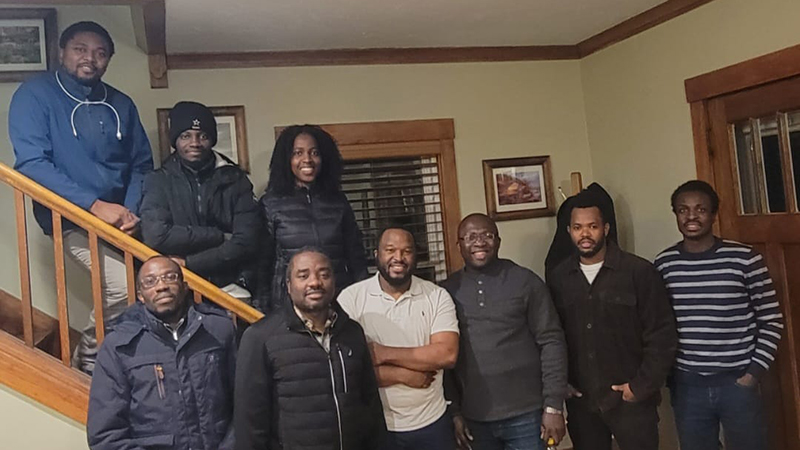Posted: 7/8/2025
Okojokwu-Idu builds African fellowship at university
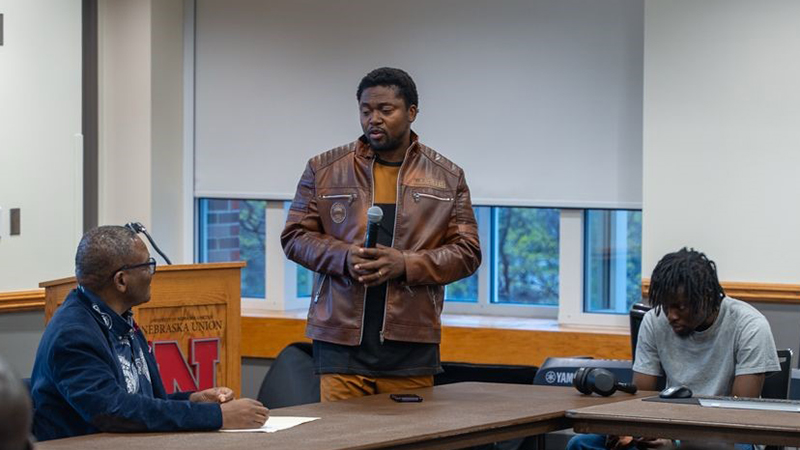
By Ronica Stromberg
The rapid growth of the university's Fellowship of African Christian Students to 160 members in less than three years comes as no surprise to its president of two years, Jerome Okojokwu-Idu. A School of Natural Resources doctoral student, Okojokwu-Idu said the group meets a deep, often unspoken need among African students navigating life in a new country.
"Many of us from Africa are deeply religious," he said. "When you face challenges as daunting as graduate school, you often reach into the core of your identity for strength. That’s where faith begins to speak. For many of us, Christianity has provided a foundation of stability."
The Fellowship of African Christian Students offers students spiritual and recreational activities online and in person. The group welcomes new African students with spring and fall orientations, holds potlucks and graduation barbecues, hosts guest speakers and gathers the African community together to pray and fellowship. Another School of Natural Resources doctoral student, Shabani Muller, leads the group's weekly Bible study.
Lydiah Kiramba, the advisor for the group and an associate professor in the Department of Teaching, Learning and Teacher Education, said the group plays a transformative role by engaging its members in topics like succeeding in graduate school, navigating job applications and career searches, fostering community engagement on campus and promoting career awareness.
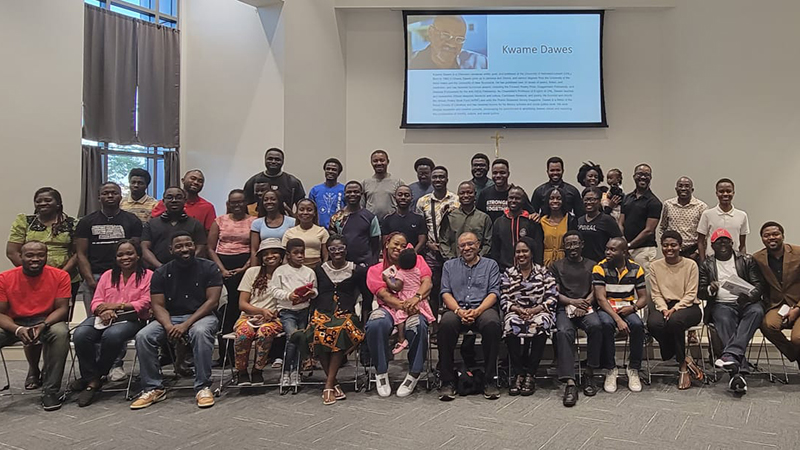
"What sets FACS apart is its intentional and compassionate response to the unique needs of international students," Kiramba said. "Jerome's leadership is personal and impactful. He makes it a point to check in with members, ensuring they are thriving academically, emotionally and socially. His selfless leadership, coupled with the unwavering dedication of the FACS team, reflects a profound commitment to building an inclusive, supportive and empowering campus environment where all students can flourish."
She and Okojokwu-Idu agreed that the heart of the group's mission is a commitment to nurturing spiritual growth, offering consistent opportunities for worship, prayer and mentorship that support students in their faith journeys.
"Sometimes, all a person needs is a listening ear, or someone to join hands in prayer," Okojokwu-Idu said. “Those small acts restore strength. Many of us have experienced firsthand how prayer inspires and sustains us through difficulty."
Although the fellowship primarily consists of African graduate students, it also includes recent graduates, spouses and community members. Okojokwu-Idu said the group would like to include more undergraduates and African-American students. It is a registered student organization at the university and free to join.
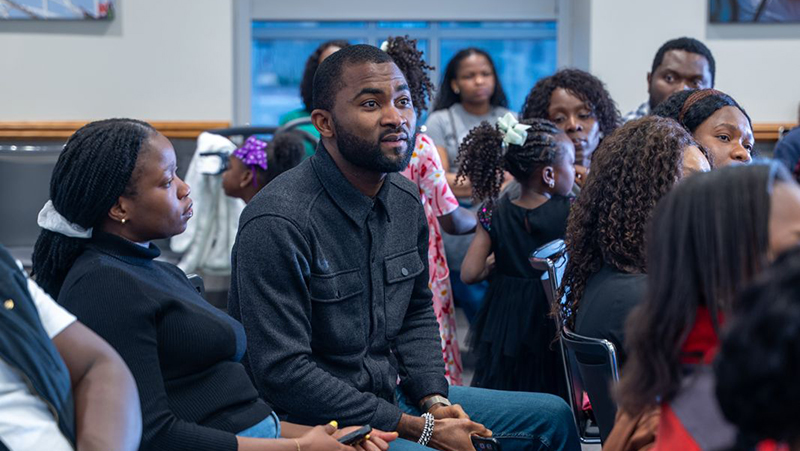
"A lot of our members came to the U.S. after achieving academic distinction in their home countries," Okojokwu-Idu said. "With their families thousands of miles away, many focus solely on academics. The fellowship becomes a vital space for emotional and spiritual connection."
Beyond faith, he said the group has helped students address cultural and practical challenges. When some members fell victim to remote job scams, the fellowship organized an informational session featuring cybercrime experts. Recognizing the unfamiliarity some African students had with the U.S. healthcare system, the group invited representatives from the university's health and recreation centers to explain available services. When children of members experienced religious intolerance in public schools, the group hosted representatives from Christian schools to explain how local private school systems work and their costs.
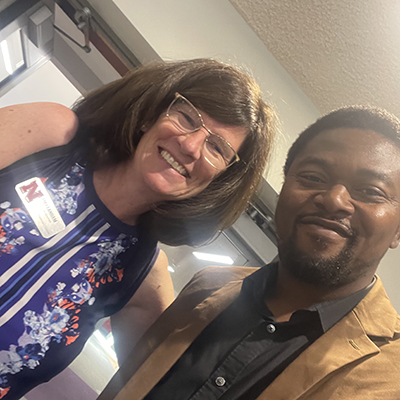
Okojokwu-Idu credits the fellowship not only with enriching the university experience for its members but also with helping him grow as a leader.
"This group has been my village," he said. "It's played a major role in supporting my wife and me as we raise our three children."
The group rotates among homes, churches and campus spaces in its monthly gatherings to pray and fellowship. These meetings often include shared meals, snacks, barbecues or traditional African dishes.
Okojokwu-Idu said indigenous people in Africa have developed a tenacity passed from generation to generation with faith as a source of strength. In pursuing his doctorate with a specialization in climate assessment and impacts, he said he has leveraged his faith to stay strong in his program. He stated that the academic excellence of African Christian students is closely linked to their faith.
"There’s a clear connection between our spiritual practices and our academic success," he said. "When our freedom to express our faith is respected, our performance speaks volumes."
The African Christian students carry their communal ways from Africa to the United States, he said. He estimated from 40 to 70 students show up for in-person meetings. Members use email, WhatsApp and Instagram, @unlfacs, to circulate information and promote activities. The University of Nebraska–Lincoln has helped build the group by referring students to it and picking up new African students at the airport.
At the start of the fall semester, the group will welcome new African students with an orientation, which Okojokwu-Idu described as a happy time.
"When they meet students and professors like themselves, they light up," he said. "Because we’re scattered across departments and research labs, many students don’t realize how many African peers they actually have."
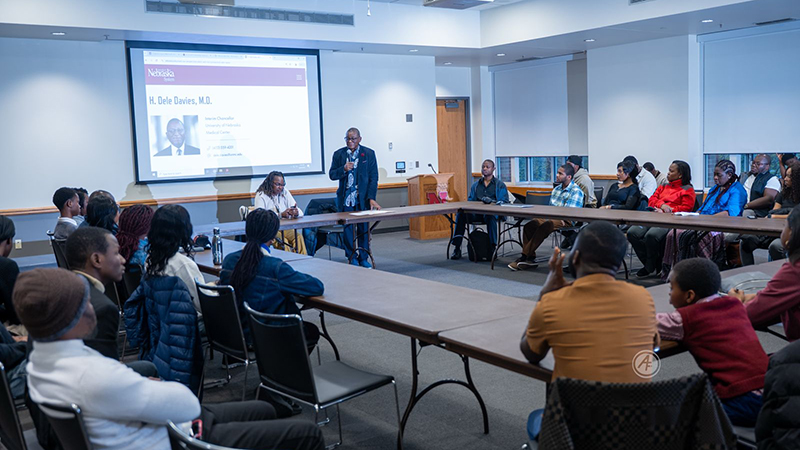
Okojokwu-Idu will finish serving as president of the fellowship in July, so the group will welcome new students in the fall with a new president. He said he is not worried about this transition because the group now has 12 executives interested in leading and able to do so.
When he counted the executives and saw there were 12, the same number as Jesus's disciples, Okojokwu-Idu said he was surprised.
"It wasn't something we planned," he said. "It was just one day I counted and thought, 'Wow, this is just interesting.' Each one of them is capable of leading. In fact, I believe they will exceed what we’ve accomplished because they've learned from our experiences."
With about a year to finish his degree, he expects to be around to help the new leadership.
"I'm going to be hanging around like a big brother advising them, to say, 'Now that we have established this, the next level is to welcome in more undergrads.'"
